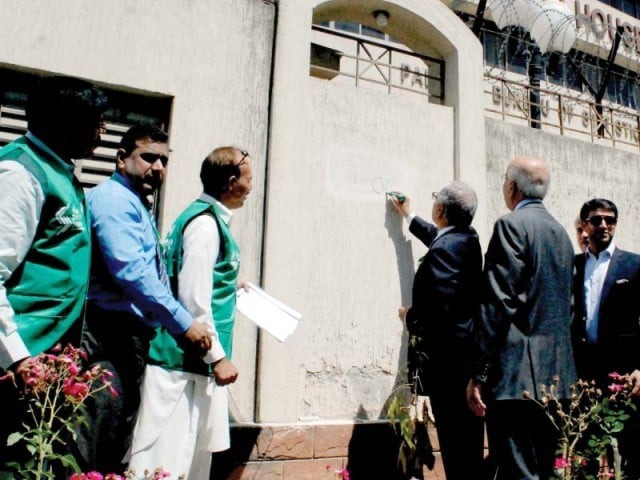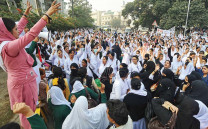Census results continue to hang in the balance
Federal govt has failed to conduct audit of 5% data

Federal govt has failed to conduct audit of 5% data. PHOTO: FILE
Interestingly, Form-II A, which has to be done on a sample basis for additional information after the results, also remains incomplete.
So far, eight per cent sample data has been collected in urban and rural blocks pertaining to the causes of internal migration, educational and financial activities, and the prevalence of five childhood diseases. Form II-A was part of the 1998 census and was also a part of the planning for the recent census, but the Statistics Department did not implement it.
The final data of the 2017 Census has not been published till date and only interim results have been provided. According to sources, the final report is not being published because it is still awaiting approval by the Council of Common Interests (CCI). The reservations of smaller provinces is the main reason for the delay, which makes auditing a five per cent sample of the data even more important.
In an attempt to cover up for their poor performance, senior officials at the Statistics Department are trying to get the final report published without the five per cent audit, sources said.
After a briefing by the concerned department, former premier Shahid Khaqan Abbasi had pushed for the issuance of the final report in his final CCI meeting in 2018. However, his efforts were in vain due to the strong opposition from Sindh Chief Minister Murad Ali Shah. The incumbent government is also busy trying to build consensus around the issue with federal bureaucrats.
The 2017 census - held 19 years after the last one - was carried out in two phases between March 15 and May 24, 2017 at a total cost of Rs21 billion. The long duration of the process led to criticism from several stakeholders and researchers.
The initial demographic data was published last year, after which smaller provinces, specifically Sindh, expressed serious reservations. The Sindh government accepted the initial results on the condition of a five per cent audit.
Incidentally, the Muttahida Qaumi Movement (MQM) and Pak Sarzameen Party (PSP) both had serious reservations over the statistics on Karachi and also rejected the census. They had also demanded scrutiny of five per cent of the census results.
Later, new constituencies of the national and provincial assemblies were demarcated based on the initial results, which formed the basis of 2018 General Elections.
The former Pakistan Muslim League-N government had agreed to the five per cent audit to address Sindh's reservations, but they failed to resolve the issue and present the final results of the census during their tenure.
Pakistan Bureau of Statistics advises Imran's govt against census verification
During the last CCI meeting of his tenure, former premier Abbasi had put forth the recommendation of issuing the final census results without an audit. But Sindh CM Shah strongly opposed it and said the final results will not be accepted without an audit. Balochistan's chief minister had also supported Shah, based on which Abbasi left the matter unresolved by declaring that the audit and final census result will be the responsibility of the next government.
Dr Nawazul Huda, a census expert, says that the sixth census had become controversial due to the failure to perform the five per cent audit and non-implementation of Form-II A.
"The delay in the audit, despite the approval of the federal cabinet and CCI, is incomprehensible. The higher authorities are avoiding the audit just to conceal their weak performance. The census was controversial from the beginning," he recently told reporters.
According to Huda, spreading the census drive over two-and-a-half months reflected poor planning, because the 1998 Census was completed in just 16 days.
Explaining the details of Form-II A, Huda said it "helps reflect the standard of living and the causes of inter-country migration. The educational and financial activity data, as well as details pertaining to five children's diseases, has been collected, which include vaccination and anti-polio drives."
He added that this data was collected on an eight per cent sample basis. "The Statistics Department not only committed a criminal offence by leaving the survey incomplete but also wasted billions of rupees," the census expert decried.
He also said that with two years having past since the census, Form-II A and the five per cent audit have already lost their significance.
Published in The Express Tribune, May 15th, 2019.


















COMMENTS
Comments are moderated and generally will be posted if they are on-topic and not abusive.
For more information, please see our Comments FAQ